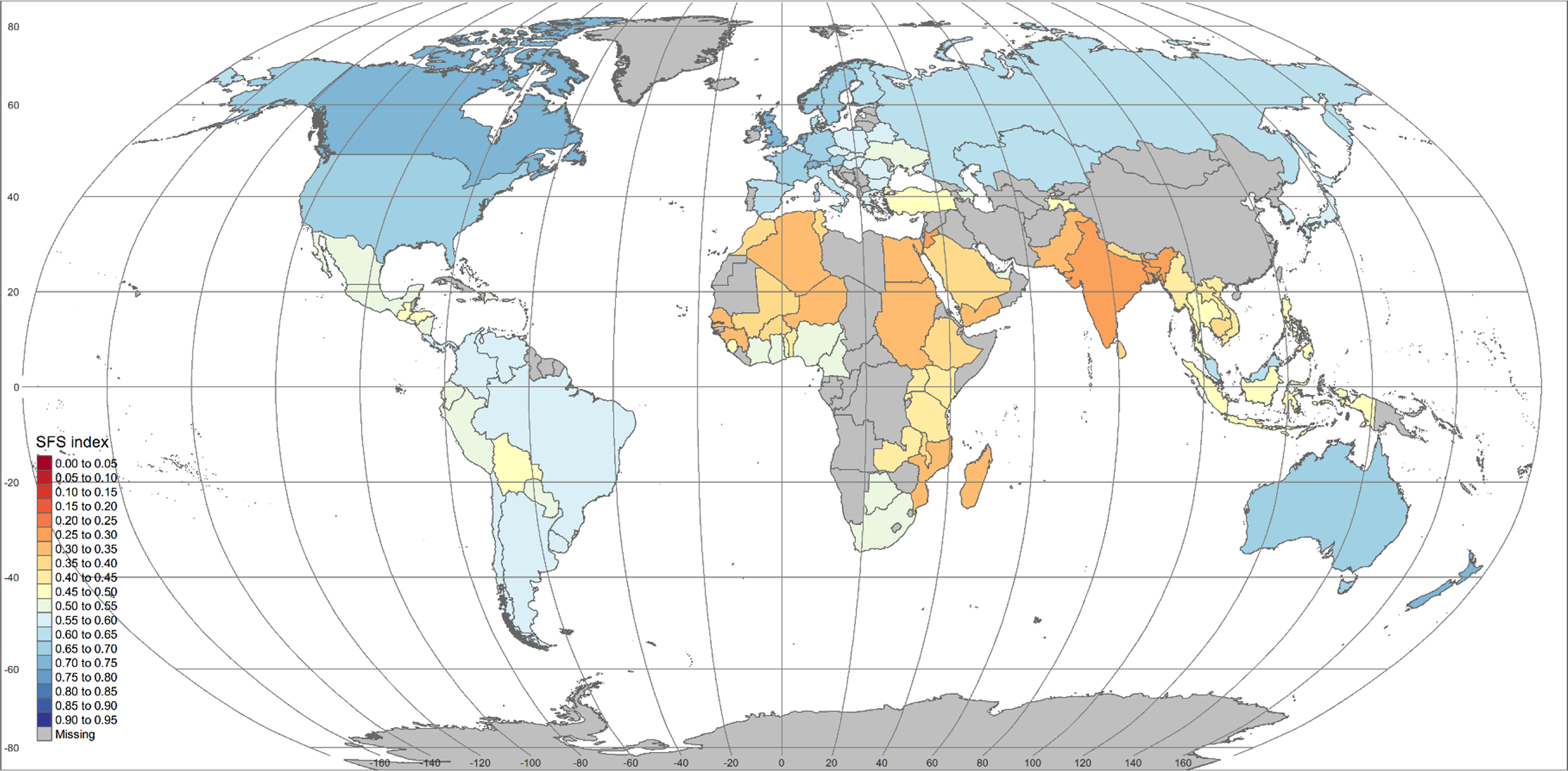Modern agriculture and free markets changed all that. A new study finds that as the world has increased its standard of living - there are fewer people in poverty than ever in history and it continues to drop fast - it can lead to concern about food system sustainability. As people get wealthier, they move out of rural areas and into cities, but as we have seen during the SARS-CoV2 panic, when 2 percent of people provide all of the food there is less food system stability. Unless there is a large free trade market.
While population growth has obvious impact on how much food is needed, urbanization, lifestyle changes (such as higher profit organic markets for elites), and more land used by urban dwellers impact how much food can be supplied. Only international market forces have a net positive effect on global food systems sustainability.
The paper shows what most know; science, which can make less fertile soil achieve better yields and knock out pests, is the great equalizer. Without it, only high-income countries can have a higher level of food system sustainability. With stronger agriculture, not the kind of political effort driven by the United Nations FAO, which promotes alternatives such as "agroecology".

CLICK IMAGE FOR LARGER SIZE. Food system sustainability score calculated for 97 countries and 20 indicators covering the four dimensions of food system: Environment, economic, social, and food security&nutrition. The list of indicators used to build the map is provided in Table 1. Country individual scores are provided in S4 Table. Reprinted under a CC BY license with permission from Scientific Data, original copyright 2019. https://doi.org/10.1371/journal.pone.0231071.g001
Not much will stop people from abandoning farms as their lifestyles improve. In America, though opponents of agriculture have created a myth of factory farming, 2,200,000 farms are instead family-owned and half of those make only enough revenue to pay the taxes on the land. Without those farms, even America would starve but few others would work if they paid 100 percent of their income in taxes. So over time people will move away from agriculture but that makes rich countries more reliant on international trade.
If Canada closes its borders to both immigrants and tourists, as it did last month, it becomes more necessary than ever for domestic food to take over. But nearly all of their "organic" food is imported so lifestyle choices for the wealthy will be the first thing to go in a pandemic.
Yet no one is really safe, because four of the five drivers of food systems sustainability are negative. Only international trade is positive. Which means countries either need to focus more on optimal agriculture, a real struggle in most European countries where political agendas against agriculture dominate, or increase free trade.





Comments